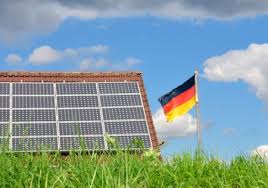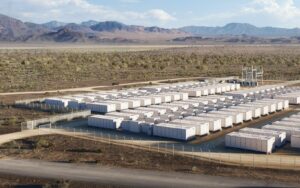The official figures from Germany’s Environmental Agency (UBA) are not yet in, but AGEB has published its official estimate of energy statistics for 2013. For the power sector, the original preliminary report from December did not contain any estimate of carbon emissions, or of actual coal consumption (primary energy). Rather, it only discussed power production (final energy).
But as our Thomas Gerke pointed out in January, carbon emissions are related to the amount of primary fossil energy consumed, not the amount of final energy produced. Germany is making more electricity from less coal. Gerke estimated that carbon emissions from the power sector – remember, we are only talking about electricity, not total energy consumption – must be down by around 0.3 percent.

Thomas Gerke
Now, the AGEB has confirmed his findings, though they refrained from stating outright that carbon emissions are down. Here is the statement from the press release (PDF, all texts only in German; these are my translations):
Lower emissions from natural gas turbines and lignite power plants compensated for the increase in CO2 emissions from hard coal plants.
A more literal translation would read that the “increase” in CO2 from hard coal was “balanced” by the drop in consumption of natural gas and lignite for power.
The full report (PDF) states that CO2 emissions “are practically unchanged year over year.”
While power from natural gas shrank considerably, the increase in electricity from lignite and hard coal was compensated for by greater use of renewables, so that the CO2 intensity of power generation remained the same in 2013 as in the previous year.
The figure given for 2013 for “general power supply” is 0.51 kg of CO2/kWh. Strangely, no number is reported for the previous year. If you want to compare, you have to go find the official report for 2012 (PDF). Et voilà, the figure for that year is 0.52 kg of CO2/kWh. Carbon emissions from the German power sector were down in 2013.

Agora
Why is this message suppressed?
In any normal situation, such hard facts would simply be reported – it’s not like there’s no way to say “carbon emissions are slightly down year-over-year” in German. But the AGEB writes only that “Germany was probably not on target for its carbon emission reductions in 2013.” The organization is focusing on total energy consumption, not just power. In other words, Germans actually are seriously concerned about carbon emissions, and they are not going to celebrate some minor downturn in the smallest of the three main energy sectors (Germany consumes roughly a fifth of its energy as electricity, but 2/5 as motor fuel and 2/5 as heat).
Why is Renewables International celebrating this outcome? We’re not; we are reporting on it. We would also like to speed up the transition to renewables and phase out fossil fuel even more.
The charge that German carbon emissions are up because it is switching to coal is a popular meme in particular among the nuclear community. It is therefore important to set the record straight. Nuclear plants produce electricity, not liquid fuel, and the waste heat from nuclear plants is almost never used; apparently, not enough people want to live or work close enough to a nuclear plant to make the recovery of waste heat practical. The power sector is the easiest thing to fix. German carbon emissions largely come from heat and motor fuel, where too little is being done.
In a few weeks, the UBA should produce its own estimate of carbon emissions in the power sector, so we expect to be back with further confirmation of these findings soon. And keep in mind that we have estimated lower carbon emissions for 2014 as well from the power sector for various reasons, including most recently lower power exports to France, though the overall forecast for the power sector remains bleak until the end of the nuclear phaseout in 2022.
Source: Renewables International. Reproduced with permission.







